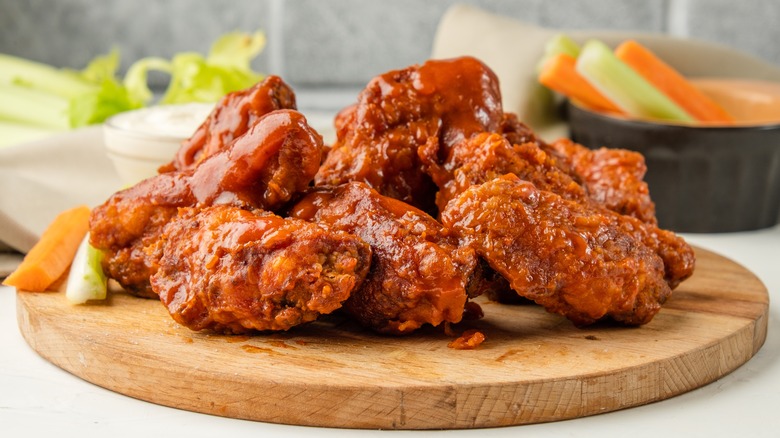The FDA Has Given Its First Official Seal Of Approval For Cultivated Meat
If you're unfamiliar with the term "cultivated meat," you're not alone. It's a concept so new that the FDA had not even approved it as a method for producing meat products — until now.
Cultivated meat is sometimes referred to as cultured meat – which, according to Good Food Institute, refers to any meat grown from animal stem cells. In short, producing meat that's been cultivated from animal cells means scientists have found a way to produce meat products without actually having to kill animals.
The cells allow the lab-grown meat to essentially retain the same look, feel, and nutritional value as true animal meat, meaning you could someday be eating a burger that you can't even tell came from somewhere other than a cow. It took a while for the FDA to actually approve the process, but there are still a few caveats and a number of hoops to jump through before you'll see it on store shelves.
What does the FDA's approval mean for the meat industry?
It will be a while before lab-grown meat becomes anywhere close to the norm. Right now, the FDA has only approved one company's process, a brand called Upside Foods, for cultivating chicken — and according to Wired, the company still needs inspection approval on its production facility, plus all the meat it produces. While that process won't take as long as the FDA's initial approval, having only one approved production facility means it could be a while before our grocery store shelves are stocked with lab-grown meat.
Before you get too excited: While the concept is intriguing and could be a great alternative to traditional animal slaughter, the cost is certainly a factor. Wired reported that the chicken could run as much as $17 per pound. (To put it in perspective, the average cost of a real boneless chicken breast is around $4.67 per pound, per the U.S. Bureau of Labor Statistics.)
Though cultured meat could be the future, you can expect to shell out quite a bit more for the products. Don't be surprised if you soon see this on upscale restaurant menus, either: Upside Foods plans to roll out the products to professional chefs before selling it to the general public.

